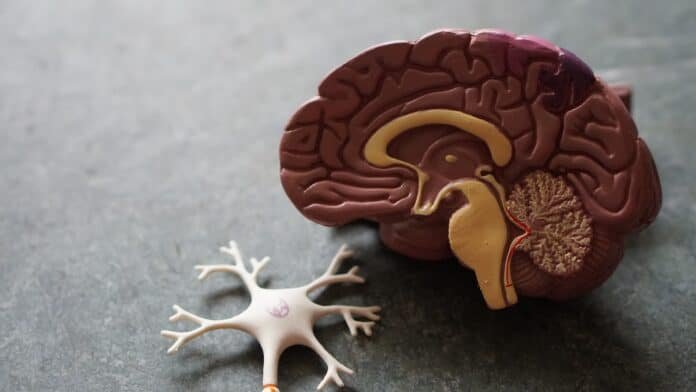Embarking on a journey of personal growth often involves challenging and reshaping deeply ingrained beliefs about ourselves and our capabilities. One crucial aspect of this transformation is cultivating a growth mindset, which fosters the belief that our abilities can be developed through dedication, effort, and persistence. In this blog post, we will delve into the science behind fixed and growth mindsets and provide practical strategies and real-life examples to help you overcome limiting beliefs and unlock your full potential. Are you ready to transform your life? Let’s get started!
Understanding Fixed and Growth Mindsets
The concept of fixed and growth mindsets was first introduced by psychologist Carol Dweck through decades of research on achievement and success (Dweck, 2006). According to Dweck, people with a fixed mindset believe that their intelligence and talents are static, leading them to avoid challenges and give up easily when faced with obstacles. In contrast, individuals with a growth mindset embrace challenges, persevere through setbacks, and view effort as the path to mastery.
The Impact of Mindsets on Personal Growth
A person’s mindset has a significant influence on their motivation, resilience, and overall success. Research has shown that individuals with a growth mindset are more likely to:
- Seek out challenges and learning opportunities (Dweck, 2006)
- Persist in the face of setbacks and difficulties (Dweck & Leggett, 1988)
- Embrace constructive feedback and criticism (Dweck, 2015)
- Develop higher levels of achievement and performance (Blackwell, Trzesniewski, & Dweck, 2007)
Strategies for Developing a Growth Mindset
Now that we understand the importance of cultivating a growth mindset, let’s explore some practical strategies to help you shift from fixed beliefs to a mindset that embraces growth and potential.
Reframe Your Inner Dialogue
The way we talk to ourselves has a powerful impact on our beliefs and actions. To develop a growth mindset, it’s essential to become aware of your inner dialogue and challenge any limiting beliefs or negative self-talk.
- Identify fixed mindset thoughts: Pay attention to thoughts that imply static abilities, such as “I’m not smart enough” or “I’m just not good at this.” Recognize these thoughts as reflections of a fixed mindset.
- Replace with growth mindset thoughts: Reframe these limiting thoughts to reflect a growth mindset. For example, instead of saying “I’m not smart enough,” tell yourself, “I can learn and improve with effort and persistence.”
Embrace Challenges and Setbacks
Adopting a growth mindset involves viewing challenges and setbacks as opportunities to learn and grow. By embracing difficulties, you can develop resilience and unlock your full potential.
- Seek out new experiences: Actively pursue new challenges and learning opportunities, even if they are outside your comfort zone. This can help you build confidence and develop new skills.
- Reflect on past setbacks: Consider past experiences where you faced adversity or failure. What did you learn from these situations? How can you apply these lessons to your current goals and pursuits?
- Develop a plan to overcome obstacles: When faced with a challenge, create a detailed plan outlining the steps you will take to overcome it. This can help you stay focused and motivated, even when the going gets tough.
Adopt a “Not Yet” Mentality
One key aspect of a growth mindset is recognizing that success and mastery are often the result of ongoing effort and persistence. By adopting a “not yet” mentality, you can reframe setbacks and failures as temporary hurdles on the path to success.
- Celebrate small wins: Acknowledge and appreciate the progress you’ve made, even if you haven’t yet achieved your ultimate goal. This can help build momentum and reinforce your belief in your ability to grow and improve.
- Focus on the process: Instead of fixating solely on the outcome, pay attention to the effort and strategies you’re employing to reach your goals. This can help you develop a deeper understanding of your strengths and areas for improvement.
- Be patient with yourself: Developing new skills and overcoming fixed beliefs takes time and persistence. Remember that growth is a journey, and each step you take brings you closer to your full potential.
Cultivate a Curiosity for Learning
A growth mindset thrives on the pursuit of knowledge and continuous learning. By nurturing a curiosity for learning, you can expand your horizons, foster personal growth, and enhance your overall well-being.
- Develop a learning plan: Identify areas of interest or subjects you’d like to learn more about, and create a structured plan to explore them. This might involve reading books, taking online courses, or attending workshops and seminars.
- Learn from others: Seek out mentors or role models who embody the growth mindset and can provide guidance, support, and inspiration. Surrounding yourself with like-minded individuals can help reinforce your commitment to personal growth.
- Share your knowledge: As you learn and grow, share your experiences and insights with others. Teaching or mentoring others can help solidify your own understanding and strengthen your growth mindset.
Developing a growth mindset is a powerful strategy for overcoming fixed beliefs and unlocking your full potential. By reframing your inner dialogue, embracing challenges and setbacks, adopting a “not yet” mentality, and cultivating a curiosity for learning, you can foster personal growth and achieve remarkable success in all aspects of your life. Remember, the journey to self-improvement is a lifelong endeavor, and embracing a growth mindset is the key to unlocking your true potential.
References Blackwell, L. S., Trzesniewski, K. H., & Dweck, C. S. (2007). Implicit theories of intelligence predict achievement across an adolescent transition: A longitudinal study and an intervention. Child Development, 78(1), 246-263. Dweck, C. S. (2006). Mindset: The New Psychology of Success. Random House. Dweck, C. S. (2015). Carol Dweck Revisits the 'Growth Mindset'. Education Week, 35(5), 20-24. Dweck, C. S., & Leggett, E. L. (1988). A social-cognitive approach to motivation and personality. Psychological Review, 95(2), 256-273. Kosslyn, S. M., Ganis, G., & Thompson, W. L. (2001). Neural foundations of imagery. Nature Reviews Neuroscience, 2(9), 635-642.


